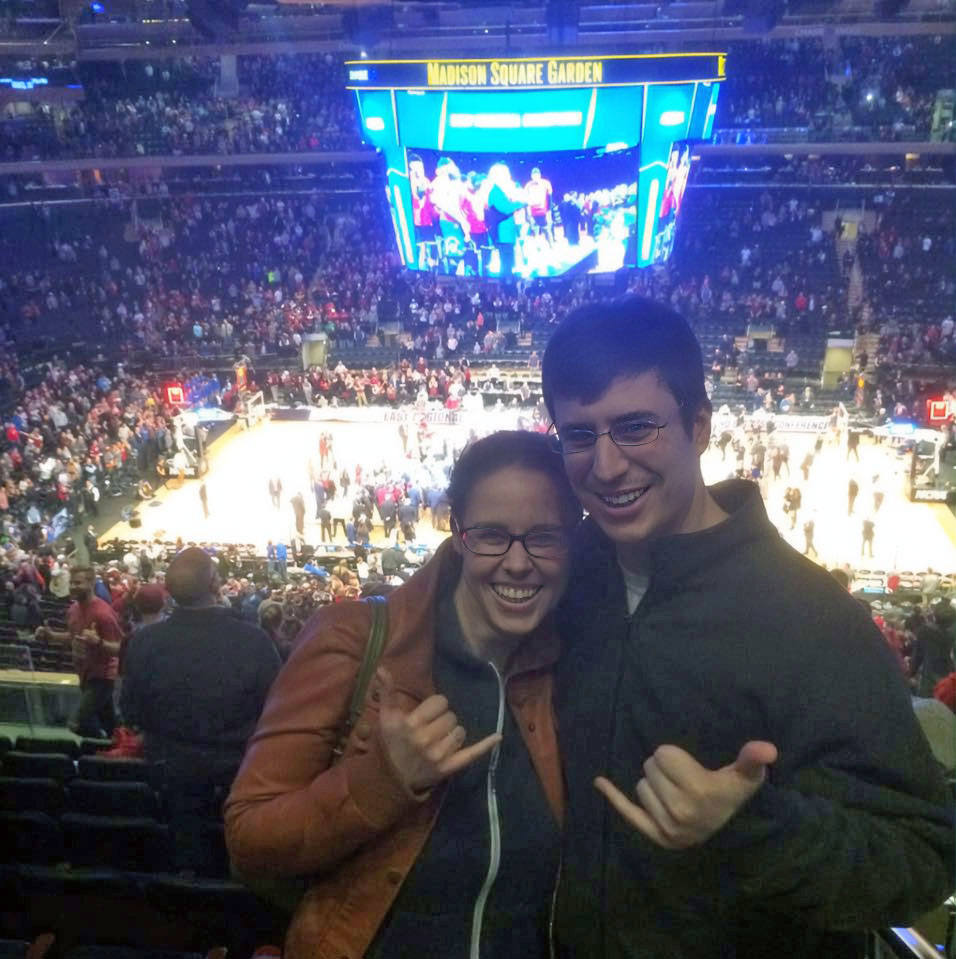
As a University of South Carolina freshman, Steve Smith and a few friends got a traffic ticket for having “Go Gamecocks!” painted on their car.
They were making the 11-hour drive to watch USC’s men’s basketball team play in the National Invitation Tournament championship at Madison Square Garden. That far from Columbia, their Gamecock spirit stood out.
“We got pulled over on the Jersey Turnpike by a cop who was a fan of the opposing team, St. Joseph’s,” Smith says. “We got a ticket for going 72 in a 65. The cop wrote the ticket and said, ‘You might as well go home. You’re going to lose.’”
At least they got the pleasure of the cop being wrong. The Gamecocks defeated the St. Joseph’s Hawks 60-57.
Twenty years later, Smith is just as much a Gamecocks fan as he was then, but now he lives in New York, where he still watches USC basketball when a team is in town. By day, he flexes his mathematical muscles to help insurance companies, pension funds and other organizations score the best investment returns possible.
Originally from Connecticut, Smith was lured to USC by 70-degree weather on the February day when he interviewed for the McNair Scholarship. When he flew home and saw snow on the ground, he decided to decline a scholarship offer from a school in the Northeast.
One semester later, his Honors College advisor asked him why he was signing up for Calculus 3, which was not required for the political science major he had declared.
“I explained, well, I just kind of like math, but I think I want to be a lawyer," Smith recalls. The advisor suggested he could major in math and still prepare for law school. Smith is grateful that the advisor took time to really understand what he wanted.
“Every time I had that Honors College advisor conversation, it was actually a conversation. It wasn’t just rubber-stamping the classes that I signed up for.”
The advisor also steered Smith to a number of other classes that had nothing to do with numbers but which he loved anyway. One of his favorites was a course on the history of jazz. One of Smith’s few regrets about college is that he never had time to take a blues class with harmonica lessons.
As Smith progressed through more math classes, he realized that numbers appealed to him more than law. He added a statistics major because he was interested in becoming an actuary ― someone who calculates insurance risks and premiums.
Outside of class, Smith worked on research projects with professors from across the university. One of those projects was a study of the National Flood Insurance Program with a business professor. They requested data from the Federal Emergency Management Agency, but they had to reach out a couple of times with no response.
“Out of the blue one day I get a call on my cell phone from a 202 area code, a Washington, DC, area code," Smith says. “It was the chief actuary of FEMA calling me, just some college student.”
The FEMA actuary talked with Smith about the requested data and then offered career advice. “He actually, over the phone, trained me in some Microsoft Excel skills that I was going to need to analyze the data.”
Smith graduated just in time to get a job on in the finance industry as the 2008 financial crisis was grinding markets to a halt. Sorting through the details of lost investments piqued his interest, so Smith eventually changed jobs to focus on investing.
Today, he runs the institutional solutions team for Neuberger Berman, a half-trillion dollar investment manager. His team recommends investment strategies based on an organization’s financial goals and comfort with risk. He likes the number-crunching, the problem-solving and working with clients. But one of his favorite parts of the job is leading a team of 14 people.
Many of his employees were hired early in their careers, allowing Smith to invest in them the way his advisor, his professors and even the chief actuary of FEMA invested in him decades ago. Several have already risen to more advanced jobs thanks to their experience on the team.
“I really enjoy watching people on the team improve and become more effective," he says. "If you care about the people who are working for you, and you care about their career development, and you think strategically about assigning them projects that will expand their knowledge, everything else happens naturally.”